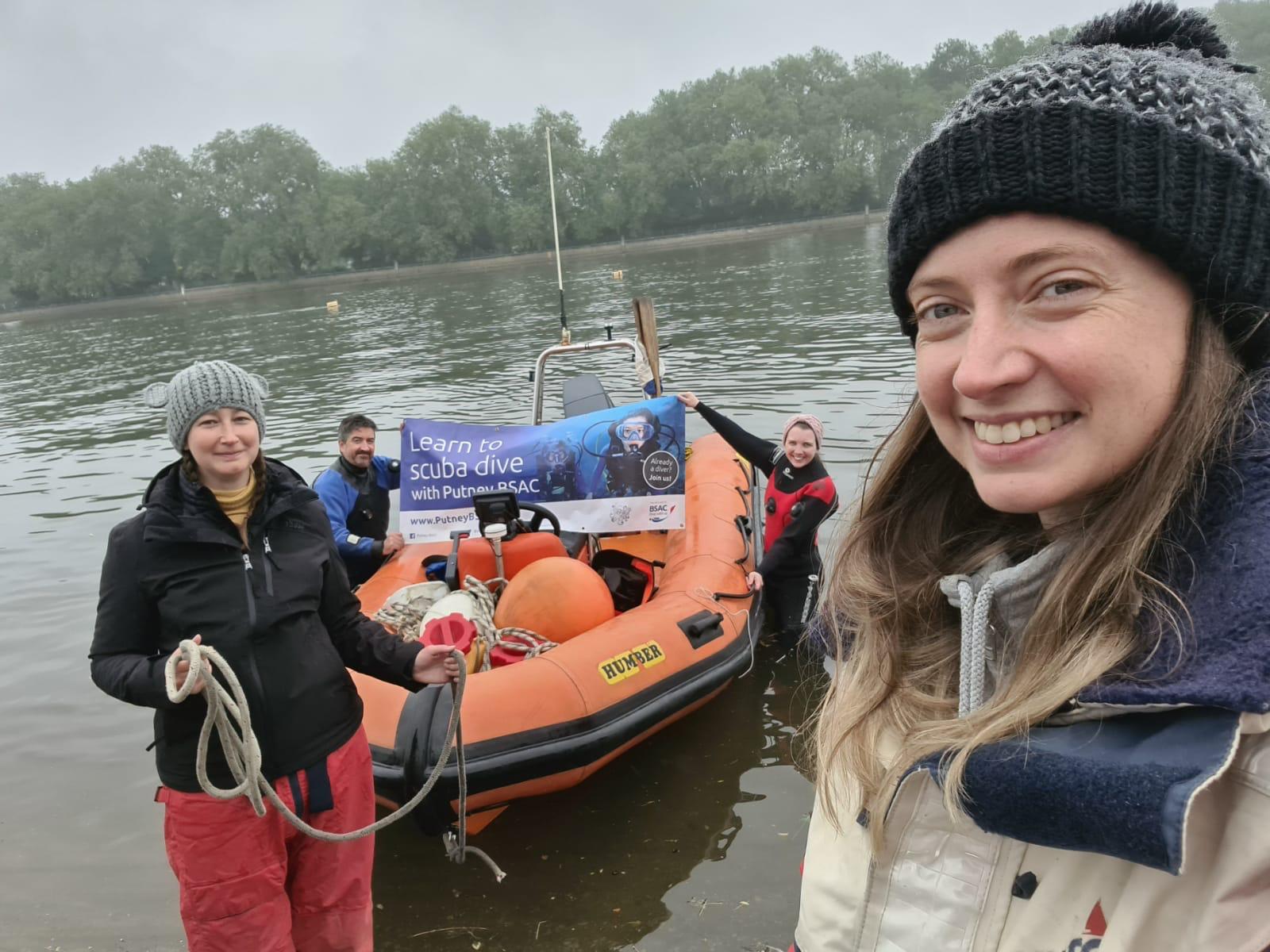- Do I need to super fit to be a diver?
- Will I need to buy much equipment?
- Where can I get any equipment I may need to buy?
- Does the club have equipment I can hire?
- What does the training involve?
- Do you offer different levels of training?
- Can I use my qualifications on holiday?
- I have PADI diving qualifications, can I transfer these across to BSAC?
- Where do you go diving?
- Why do diving in the UK? What is there to see?
- Does the club have any special rules or etiquette I should follow?
- I have some questions about the national BSAC membership, where can I find the answers?
Do I need to be super fit to be a diver?
Not at all. Although you do need to be medically fit and be a reasonable swimmer, we do not expect members to be athletes.
Will I need to buy much equipment?
Not initially. The Club has six complete sets of SCUBA equipment which is available to trainees or for use on dive trips. We levy a small charge for its use, solely to cover maintenance costs. Once you are trained, we would normally expect members to buy their own gear.
Where can I get any equipment I may need to buy?
Second hand gear is normally for sale from other members or via eBay. Alternatively, there are a number of dive shops in the Putney area which we can recommend.
Does the club have equipment I can hire?
All full members of the club may use the club equipment, there may be a fee to pay for any items used.
The equipment officer has a few dive timers and compasses that are not kept at the pool. These are available to hire and are to be returned to the Equipment Officer after use.
What does the training involve?
This depends on whether you are already a trained diver. If you are a novice, training involves five practical lessons in the swimming pool and some theory lessons. Once these have been completed, it is necessary to complete five open water lessons. All training is carried out by qualified instructors.
If you are already trained, we will simply ask you to attend a single refresher dive in the swimming pool.
Do you offer different levels of diver training?
Yes, following completion of your basic training, you can progress towards more advanced certification. This will train you to safely undertake more adventurous and complex diving.
We also offer a range of specialist courses such as boat handling and diver rescue training.
To learn more about the training we offer visit the Training page of our website.
Can I use my qualifications on holiday?
Yes, diving qualifications provided by the Club are fully accredited and recognised by CMAS, the main international diving body.
I have PADI diving qualifications, can I transfer these across to BSAC?
Yes, if you wish to continue your diving training with BSAC any PADI qualifications you have can be transferred across to an equivalent BSAC level. For example, the PADI open water and advanced open water qualifications are equivalent to the BSAC ocean diver qualification.
Where do you go diving?
Being a British club, we do a lot of varied diving in the UK, particularly along the south coast but also in many other places such as Pembrokeshire, the Orkney Isles and the Farnes Islands. We also run trips abroad to places such as Malta, Kenya, South Africa and the Red Sea.
Visit our club calendar to see what dive trips we have planned for this year.
Why do diving in the UK? What is there to see?
The UK has a diverse marine environment with more than 7,500 miles of coastline to explore. Coupled with a wide variety of inland waterways, lakes and quarries and we have a real divers’ paradise right on our own doorstep.
In Britain, you are never more than 72 miles away from the coast. That means with the right training, experience, equipment and conditions, our seas are accessible to divers all year round.
The UK’s waters are renowned for its variety of shipwrecks – with more wrecks per mile of coastline than anywhere in the world. From the famous Scapa Flow in Orkney, Scotland, where eight German ships, scuttled in 1919 now lie, to Plymouth’s HMS Scylla which was purposely sunk in 2004 to create an artificial reef, there is a wreck site to appeal to all.
While UK wreck diving is one of the most popular diver pastimes, our marine environment can also rival some of the best in the world. With cold water reefs, cave systems, wall dives, drifts, gullies and shallow bays, the UK’s marine life is as diverse as it is wonderful.
You can dive with seals and basking sharks, explore reefs with their myriad of fish or marvel at ornate soft corals or kelp forests, all within UK waters.
Does the club have any special rules or etiquette I should follow?
Yes, there is a Club constitution laid out as the Club rules, revised in 2006. Please go to About Us and then click on the link to the Committee to read the rules.
I have some questions about the national BSAC membership, where can I find the answers?
The BSAC website has an FAQ page on BSAC membership which you can visit.

